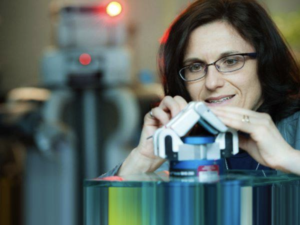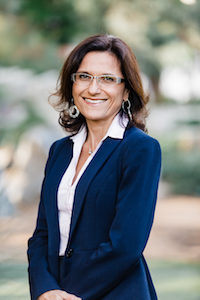
Professor Elizabeth Croft
Dean of Engineering, Monash University
Field of expertise: Robotics
Image courtesy of Monash University
In the time you have been working in your field, what impossible things have become possible?
Robots can walk, jump and run upstairs, they can shake your hand and pass you things.
There are autonomous underwater robots.
Walking robots and driverless cars.
The impossible can be possible with robots!
What impossible thing(s) are you working towards making possible, and why?
I am working towards making possible a robot in every home, supporting our lives. I aim to have them so easy to program everyone can use them and benefit from how simple it is to interact with them.
Everyone being able to access robot technology. No matter their skill level.
What is an example of an impossible thing others in your field are currently working to make possible?
Robots that see and understand their environment. That can explain themselves and understand people. Robots that can cope with the whole human being and the emotional side of humanity. That can operate in a socially acceptable manner. The way we see the world and operate/ manipulate the objects we manipulate.
In your field are there any things that you predict will remain impossible, and why?
 I think the creativity and imagination that is specific to people.
I think the creativity and imagination that is specific to people.
But I think that robots will be able to expand our capacity to be more creative and I imagine they will understand our emotions, but will never really have emotions.
In your opinion what formerly impossible and now possible thing in your field has made or is making the largest contribution to human or planetary flourishing?
One of the things we’ve been able to do with robotics is visit parts of the planet we were never able to visit before. To explore other planets we ourselves were never able to visit.
To operate equipment and systems remotely keeping people safe.
And to provide people not able to walk, to walk again.
More information:
Listen to Professor Croft speaking about her work in a recent public lecture at the Royal Society of Victoria.
